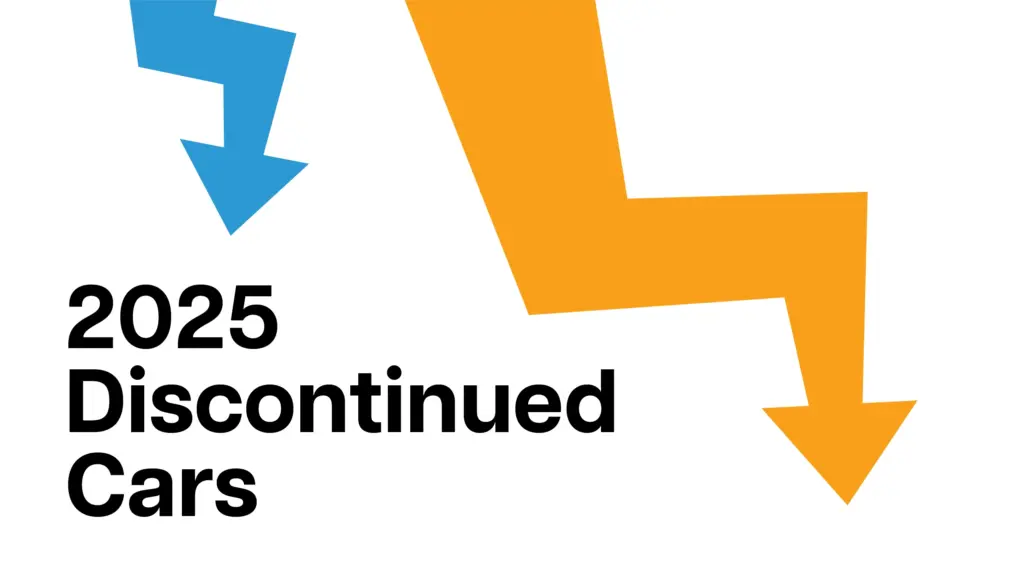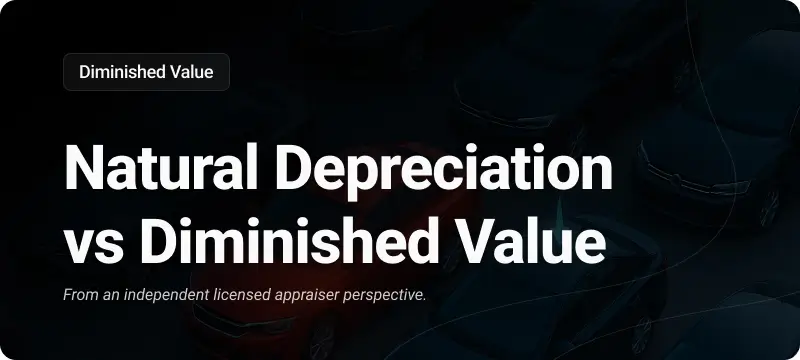
As the automotive landscape changes, 2025 will bid farewell to several beloved car models. Their retirement signifies not just the end of production, but also trends like the rise of electric vehicles and shifting consumer preferences towards SUVs. Each discontinued car has left its mark through performance, design, and affordability. This article will explore the 2025 discontinued cars, reasons for their exit, honor their legacy, and reflect on their absence in the automotive world.
All 2025 Discontinued Cars – Full List
| Model | Maker |
| Quadrifoglio | Alfa Romeo |
| Stelvio | Alfa Romeo |
| Charger | Dodge |
| Durango | Dodge |
| 500X | Fiat |
| Cherokee | Jeep |
| Renegade | Jeep |
| Levante | Maserati |
| Quattroporte | Maserati |
| 1500 TRX | RAM |
| 308 | Peugeot |
| C3 | Citröen |
| Arteon | Volkswagen |
| T-Roc Cabriolet | Volkswagen |
| Camaro | Chevrolet |
| Malibu | Chevrolet |
| XT4 | Cadillac |
| Edge | Ford |
| Escape | Ford |
| Focus | Ford |
| G70 | Genesis |
| G80 | Genesis |
| Santa Fé | Hyundai |
| Sorento | Hyundai |
| i20 N | Hyundai |
| Forte | Kia |
| Proceed | Kia |
| Telluride LX AWD | Kia |
| Mirage | Mitshubishi |
| GT-R | Nissan |
| Titan | Nissan |
| Arkana | Renault |
| Twingo | Renault |
| Zoe | Renault |
| 8 Series Coupe | BMW |
| X3M | BMW |
| X4 (Gasoline Variant) | BMW |
| Cooper Hardtop | Mini |
| Camry | Toyota |
| Venza | Toyota |
| GR Supra 2.0 | Toyota |
| 812 Competizione | Ferrari |
| 812 GTS | Ferrari |
| Roma | Ferrari |
| SF90 Stradale | Ferrari |
| Ocean | Fisker |
| XE | Jaguar |
| XF | Jaguar |
| E-Pace | Jaguar |
| F-Type | Jaguar |
| I-PACE (Original Production) | Jaguar |
| Legacy | Subaru |
| Q50 Sedan | Infiniti |
This table provides a comprehensive overview of the cars that will no longer be available in 2025, allowing enthusiasts and consumers to keep track of transitions in the automotive market.
Stellantis
Stellantis, formed from the FCA and PSA Group merger, will discontinue several models in 2025. Below are the brands and models that will no longer be available, along with reasons behind these decisions.
- Alfa Romeo Giulia
While the Quadrifoglio variants are ending, the regular Giulia may also be at risk due to declining sales and shifting brand focus towards SUVs. - Alfa Romeo Stelvio
Similar to the Giulia, the Stelvio may face discontinuation as Alfa Romeo seeks to streamline its offerings and adapt to market demands for more SUVs. - Dodge Charger
The iconic Charger might be discontinued as Stellantis focuses on electrification and sustainable energy. - Dodge Durango
As Dodge repositions itself towards performance models, the Durango may be discontinued, especially as SUVs become increasingly competitive in the market. - Fiat 500X
With underwhelming sales and a dwindling presence in the U.S., the Fiat 500X could be on the chopping block as Stellantis refocuses its brand strategy. - Jeep Cherokee
A favorite among off-roaders, the Cherokee is being retired due to rising competition and a shift towards electric vehicles, with future models focusing on electrification and advanced tech. - Jeep Renegade
With the Jeep lineup shifting towards more popular models like the Grand Cherokee and Wrangler, the Renegade may not continue beyond its current generation, especially as consumer preferences lean towards larger SUVs. - Maserati Levante
As Maserati continues its transition towards electrification, the Levante SUV may be phased out, especially if lower demand persists. - Maserati Quattroporte
Similar to the Ghibli, the Quattroporte may also be at risk as Maserati moves towards a more electrified lineup and faces competition in the luxury sedan market. - Ram 1500 TRX
Production ended in 2023, with a limited “Final Edition” in 2024. Recognized for its performance, its discontinuation reflects a trend toward electrification and efficiency. - Peugeot 308
With declining popularity and a move towards SUVs in Europe, Stellantis will discontinue the 308 hatchback to focus on more growth-oriented segments. - Citroën C3
The C3 struggles against new competitors, leading to its discontinuation as Stellantis shifts towards electrification.
Volkswagen Group
Volkswagen is revamping its lineup to meet market demands and prioritize electrification and SUVs. The following models are set to be discontinued in 2025:
- Volkswagen Arteon
The Arteon premium sedan, will end production in 2025 due to its struggle in a market favoring SUVs. - Volkswagen T-Roc Cabriolet
The convertible version of the T-Roc is set to be discontinued in 2025, marking Volkswagen’s transition towards electric vehicles and a shift away from certain body styles.
General Motors
General Motors is adjusting its model lineup in 2025 to align with trends in electrification, sustainability, and rising demand for larger vehicles and SUVs. Here are the brands and models slated for discontinuation.
- Chevrolet Camaro
The Chevrolet Camaro, an iconic sports car, is set to be discontinued as GM shifts its focus towards electric vehicles and SUVs. - Chevrolet Malibu
The Malibu sedan is being phased out due to declining sedan sales and a shift towards SUVs and trucks, allowing GM to invest in more lucrative segments. - Cadillac XT4
GM announced that production of the gas-powered Cadillac XT4 SUV will cease in January 2025. This move is part of GM’s transition to electric vehicles, with the company investing in manufacturing the new generation of the Chevrolet Bolt EV.
Ford
As Ford shifts toward electrification and sustainability, several models will be discontinued in 2025. Key retirements include:
- Ford Edge
The Edge will be discontinued in 2025 to prioritize EV production at Ford’s Oakville Assembly Plant. - Ford Escape
The compact SUV, a favorite since 2000, will also be discontinued in 2025 as Ford shifts focus to electric vehicles and larger models. - Ford Focus The Focus is set for discontinuation by mid-2025 as Ford pivots to EVs, with no extension of production at the Saarlouis plant amid market challenges.
Hyundai Motor Group
By consolidating their offerings and focusing on electrification, both Hyundai and Kia are preparing for a future that prioritizes sustainable and appealing vehicles.
- Genesis G70 The sedan version of the G70 will be discontinued as Genesis shifts focus towards larger luxury SUVs and fully electric models, in line with industry trends.
- Genesis G80 (Gasoline Variant) While the Genesis brand pushes forward with luxury electric vehicles, the gasoline variant of the G80 will be phased out as demand for traditional combustion engines decreases.
- Santa Fe and Sorento (Internal Combustion Engine Models)
In response to the European Union’s Euro 7 emission regulations, Hyundai will discontinue pure gasoline versions of the Santa Fe and Sorento SUVs in Europe by 2025. - i20 N
Production of the i20 N hot hatch ceased for the European market in February 2024, as Hyundai N transitions to offering only electric models in the region. - Kia Forte
The Forte nameplate is retired and replaced by the new Kia K4 for 2025, streamlining the compact sedan’s name to match the mid-size K5 for a cohesive brand identity. - Kia Proceed Kia has discontinued the Proceed in the UK due to declining sales. Launched in 2008, the model evolved from a three-door hatchback to a five-door estate but struggled in recent years.
- Kia Telluride LX AWD
The Telluride’s LX AWD trim is discontinued for 2025, previously the lowest-priced all-wheel-drive option. The S AWD trim now serves as the entry-level model, starting at $41,090.
Renault-Nissan-Mitsubishi Alliance
Overall, the alliance is focusing on innovative and sustainable solutions in response to changing consumer preferences and regulatory environments, aiming to redefine its position in the automotive landscape for the coming years.
- Mitsubishi Mirage
Production will end by late 2024 in the U.S. Known for being an affordable compact hatch, Mitsubishi won’t replace it despite early 2024 sales boosts, potentially prompting other brands to explore budget markets. - Nissan GT-R
Production finished in October 2024 after 17 years in North America. The iconic “Godzilla” leaves behind a legacy of R35 updates, as Nissan shifts focus to innovation and electrification in future models. - Nissan Titan
Production ceased in summer 2024. A staple in Nissan’s truck lineup for 20 years, its discontinuation marks a move toward electric vehicles, with the Canton plant adapting for new technologies. - Renault Arkana
Renault plans to cease production of the Arkana SUV coupé in 2025, ending its manufacturing at the Busan plant in South Korea. - Renault Twingo
The third-generation Twingo, including its electric variant, is set to be discontinued by 2025. This decision is influenced by upcoming Euro 7 emissions standards. The Twingo is expected to be replaced by the larger Renault 5 EV. - Renault Zoe
Production of the electric Renault Zoe concluded on March 30, 2024, after nearly twelve years. It is being replaced by the retro-styled Renault 5 E-Tech.
BMW Group
As the automotive industry heads towards a more sustainable and electric future, BMW is realigning its portfolio to phase out certain models. Here are the notable discontinued vehicles from the BMW Group in 2025:
- BMW 8 Series Coupe: Production ends as BMW shifts focus to electric models and practicality, responding to the rising demand for electrified performance.
- BMW X3M
This high-performance variant of the X3 SUV is also set to be discontinued in 2025. - BMW X4 (Gasoline Variant): The gasoline X4 is phased out as BMW emphasizes plug-in hybrids and electric SUVs, aligning with market trends towards electrification.
- Mini Cooper Hardtop: The Mini Cooper Hardtop will stop production as Mini focuses on electric variants, appealing to eco-conscious consumers with compact electric vehicles.
Toyota
The following models are set to be discontinued in 2025, reflecting both evolving consumer preferences and regulatory pressures:
- Toyota Camry
The 2025 Camry is available exclusively as a hybrid, with no pure gasoline engine option. This marks a significant shift in Toyota’s approach to the Camry lineup. - Toyota Venza
Production of the Venza ceased after the 2024 model year in North America. It was replaced by the 2025 Toyota Crown Signia, a hybrid SUV. - Toyota GR Supra 2.0
The four-cylinder engine option for the GR Supra was discontinued after the 2024 model year. The Supra is now offered exclusively with a 3.0-liter turbocharged inline-six engine.
Ferrari
Ferrari’s decision to discontinue these iconic models reflects its commitment to redefining luxury performance in the era of electrification, ensuring that it remains at the forefront of the high-performance automotive industry.
- Ferrari 812 Competizione
Similar to the Roma, the 812 Competizione is approaching the end of its production run, with no immediate successor planned. This model was known for its track-focused enhancements and limited production. - Ferrari 812 GTS
The 812 GTS, a V12-powered convertible, has also been discontinued. This model was celebrated for its open-top driving experience and powerful engine. - Ferrari Roma
The Roma coupe is nearing the end of its production lifecycle, with no direct successor announced as of now. This model has been appreciated for its elegant design and performance. - Ferrari SF90 Stradale
Production of the SF90 Stradale has been discontinued. This plug-in hybrid supercar was known for its impressive performance and advanced technology.
Fisker
As of January 2025, Fisker Inc. is no longer producing vehicles following its bankruptcy in June 2024. Consequently, all Fisker models have effectively been discontinued.
- Fisker Ocean
The Fisker Ocean, the company’s flagship electric SUV, experienced quality problems that adversely affected sales and customer satisfaction.
Jaguar
These changes signal Jaguar’s commitment to electric mobility and the evolution of its brand identity as it navigates the shift towards cleaner, more sustainable automotive solutions.
- Jaguar XE
Jaguar’s compact luxury sedan XE will end production in 2025 as the brand shifts focus to electric vehicles and SUVs amid declining sedan demand. - Jaguar XF
The XF mid-size sedan will be discontinued as Jaguar focuses on hybrid and electric models, aligning its lineup with current SUV and electric mobility trends. - Jaguar E-Pace
This compact SUV ceased production in December 2024. - Jaguar F-Type
The F-Type, a cherished two-seater sports car famed for its sleek design and performance, will end in 2025 as Jaguar shifts to an all-electric future, retiring combustion engine models. - Jaguar I-PACE (Original Production)
Jaguar will discontinue the original I-PACE, its first electric vehicle, to launch an updated version with new technology and design enhancements, keeping it competitive in the EV market.
Subaru
As Subaru lineup is mainly made of SUVs, not many models were discontinued. Take a closer look at the model being phased out:
- Subaru Legacy
The Legacy sedan, long-standing in Subaru’s lineup, will be discontinued following the 2024 production year. This shift underscores the growing popularity of SUVs over traditional sedans, as well as Subaru’s intention to reallocate resources towards developing new electric models and hybrid options.
Infiniti
As of January 2025, Infiniti has made significant changes to its vehicle lineup, focusing on SUVs and preparing for future electrification. Infiniti is preparing to introduce its first all-electric sedan, the Vision Qe concept, expected to launch by 2026. This move aligns with the brand’s strategy to expand its electrified offerings in response to evolving market demands.
- Infiniti Q50 Sedan
Production of the Q50 sedan concluded at the end of the 2024 model year. This decision marks Infiniti’s exit from the sedan market, aligning with industry trends favoring SUVs and crossovers.
Changing Consumer Preferences: A Factor in 2025 Discontinued Cars
The automotive world is evolving, with consumer preferences driving change! As SUVs and crossovers gain popularity for their space and versatility, manufacturers are retiring certain models. For instance, Nissan bids farewell to the Titan to focus on these trends. Likewise, Audi is phasing out the A5 Coupe and Convertible in the U.S. in favor of electric and hybrid vehicles.
In performance cars, younger buyers prioritize practicality and efficiency over traditional muscle cars. Automakers are adapting to this eco-conscious generation by discontinuing models that no longer fit consumer needs. Ultimately, the industry is shifting to meet evolving demands, steering brands towards a future of electric vehicles and innovative designs!
The Shift to Electrification: What It Means for the Industry
The automotive industry is transforming as electrification influences vehicle design and consumer choices. Major manufacturers are prioritizing electric and hybrid models in response to sustainability demands and regulatory pressures, leading to the discontinuation of popular models like Nissan’s Titan and Infiniti’s Q50 in favor of EVs like the Nissan Ariya.
Carmakers are re-evaluating production and marketing strategies, investing in advanced batteries and drivetrains. For example, Ford has halted Edge SUV production to focus on F-Series trucks, emphasizing the need for focus during this transition.
As this shift continues, sedans and sports cars like the Jaguar XE and F-Type may decline in popularity, while electric SUVs and crossovers rise, aligning with consumer preferences for practical, eco-friendly vehicles. This shift highlights technology-driven features and is reshaping the automotive landscape.
Ultimately, the push for electrification is changing not only vehicle offerings but also how manufacturers engage with drivers, adapting to the rising demand for electric options and paving the way for an innovative, sustainable future.
The Legacy of These Models: Impact on Enthusiasts and Collectors
The discontinuation of iconic models like the Cadillac XT4, Chevrolet Malibu, Subaru Legacy, and Volvo S60 marks a significant shift for manufacturers and car enthusiasts. These retirements impact trends and collector interests deeply.
Nostalgia surrounds discontinued models, particularly the Subaru Legacy, which has built a loyal fan base since 1989. Its end signifies an era, likely increasing the desirability and value of existing models for collectors.
Post-discontinuation, the used car market often sees a surge in demand. The Chevrolet Malibu, with over 10 million sales, will draw buyers, raising prices and competition. Enthusiasts should consider acquiring a well-maintained Malibu soon.
However, owning discontinued cars brings challenges, especially in sourcing parts. After production halts, finding replacements can become costly, hindering preservation efforts. Collectors may require creative strategies or community support to locate scarce components, making the condition of these vehicles crucial for market value.
Conclusion: Reflecting on 2025 Discontinued Cars
As we approach the 2025 model year, nostalgia arises for cars that shaped our automotive culture, like the Jaguar F-Type and Alfa Romeo Giulia. These models offered more than transportation; their stunning designs and thrilling performance exemplified engineering excellence. Their production’s end represents the close of exciting chapters filled with cherished adventures.
As the industry shifts to electrification and prioritizes SUVs, we bid a bittersweet farewell to these icons of passion and performance. While we embrace new technologies, we also honor the cars that defined an extraordinary era. The joy they’ve provided and the memories we’ve made will forever keep them in our hearts.



